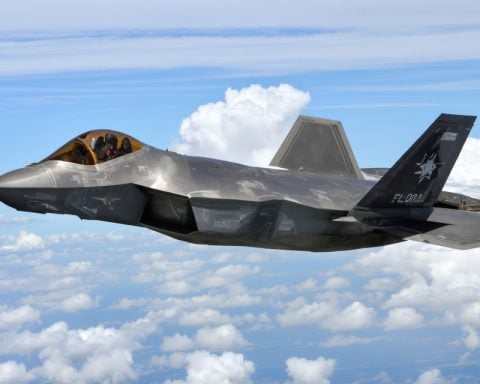- The U.S. has increased deportations of Indian migrants via military flights, marking a significant policy change.
- The operation includes C-17 aircraft transporting individuals back to India, with a notable journey time exceeding 24 hours.
- Approximately 18,000 Indian nationals are living illegally in the U.S., with the Indian government offering assistance for their return.
- The Trump administration is also ending deportation protections for over 348,000 Venezuelans, citing changing conditions in Venezuela.
- The recent deportation efforts highlight the ongoing complexities of immigration policies and their impact on individuals seeking safety.
In a bold move amid rising tensions over immigration, the United States has ramped up deportation efforts, sending Indian migrants back home on military flights. These recently initiated C-17 transport missions mark a dramatic shift in the Trump administration’s approach to handling undocumented immigrants.
Reports reveal that a C-17 aircraft has already departed for India carrying a number of these individuals, with a journey time of over 24 hours. This significant operation also sees the Pentagon facilitating the return of thousands of immigrants from El Paso and San Diego, targeting those held in U.S. custody. These military flights have previously reached destinations such as Guatemala, Peru, and Honduras.
As the number of Indian nationals living illegally in the U.S. is estimated at around 18,000, Indian External Affairs Minister S. Jaishankar has expressed the government’s readiness to facilitate the return of those willing to come back home.
Meanwhile, the Trump administration is also intensifying its crackdown on Venezuelan nationals, with Secretary of Homeland Security Kristi Noem signaling an end to deportation protections for over 348,000 Venezuelans. This marks a significant policy shift, fueled by claims that the precarious conditions in Venezuela no longer warrant such safeguards.
This wave of deportation could reshape the lives of countless individuals, reminding us of the complex realities of immigration policies—where the quest for safety and stability often clashes with legal frameworks.
Takeaway: As migrations become a spotlight issue, it’s crucial to remain informed about policies affecting the journeys of many individuals seeking better futures.
Shocking Shift in US Immigration Policy: Military Flights for Indian Deportations
Overview of Recent Developments in US Immigration Policy
In response to rising concerns over undocumented immigration, the United States has intensified its deportation efforts, particularly targeting Indian migrants. As part of these efforts, military flights employing C-17 transport aircraft have been instituted to facilitate the deportation of individuals back to India. This new policy shift represents a departure from previous practices and has significant implications for international relations and individual futures.
Key Information:
– Military Deportation Flights: The U.S. has begun using C-17 aircraft to deport undocumented Indian migrants, with initial flights already operational.
– Estimated Indian Nationals: Approximately 18,000 Indian nationals are believed to be living illegally in the United States, accentuating the urgency of the new deportation strategy.
– International Cooperation: Indian External Affairs Minister S. Jaishankar has indicated that the Indian government is prepared to assist the return of its citizens who are willing to go back.
– Venezuelan Deportations: Alongside the Indian nationals, the Trump administration is terminating deportation protections for over 348,000 Venezuelan immigrants, signaling a broader crackdown on undocumented residents.
Pros and Cons of the New Deportation Strategy
Pros:
– Resource Management: Utilizing military aircraft may streamline the deportation process.
– Legal Clarity: Strengthened enforcement of immigration laws can deter unlawful entry.
Cons:
– Humanitarian Concerns: Rapid deportations raise ethical questions about the treatment of individuals seeking asylum.
– Strain on Families: Many deportees have families in the U.S., leading to potential family separations.
Market Forecasts in Immigration Policy
The current trends in U.S. immigration policy may lead to a tightening of borders and increased deportation measures. This could create a ripple effect, impacting both the economy and foreign relations, particularly with countries like India and Venezuela. Analysts predict that as enforcement measures intensify, there may be a rise in migrant populations seeking asylum in other nations, testing international immigration frameworks.
Frequently Asked Questions
1. What are the implications of military flights for deportation?
– The use of military aircraft for deportations could expedite the process but may also raise ethical and logistical concerns about how these individuals are treated during their transportation.
2. How has the immigration policy affected relations with India?
– The sudden increase in deportations could strain U.S.-India relations if not handled with diplomatic sensitivity, especially considering the socio-economic ties between the two nations.
3. What are the potential outcomes for Venezuelans under the new policy?
– With the end of deportation protections, many Venezuelans could face significant risk upon return, potentially worsening the humanitarian crisis in Venezuela and prompting new migration waves.
Takeaway: As immigration policies evolve, staying informed about the implications and the stories behind these decisions is essential in understanding the broader impact on individuals and communities.
Suggested related links: Department of Homeland SecurityUSCISState Department







